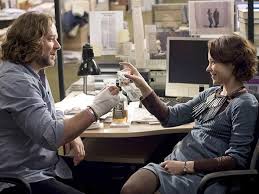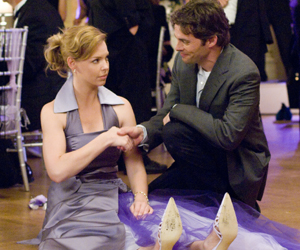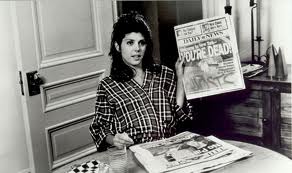This coming week, I’m going to interview someone in connection with a nonprofit that helps teenage girls deal with body issues and that helps them build a healthy sense for eating and exercising habits.
It’s got me to thinking about my own situation, and how nice, how wonderfully helpful it would have been if we’d had any such similar program around when I was growing up.
There were some bad years, some unfortunate situations, but I wouldn’t say that any of it was vindictive or purposefully destructive on my parents’ side. But then there were some really good supportive years too, and still somehow I struggled with identity and weight issues. Often, I still do.
As a child, I was chubby. I always had pinch-able cheeks. I was short, so the fat had nowhere to go, I had no siblings at home to motivate me to go play and runaround outside- instead, I had books and sedentary hours at the piano, and our diet then was heavy on the starch, carbs and meat, easy on the vegetables.
Even at the sweet age of nine, when no girl should be thinking about diets and altering their growing body, I remember my aunts making direct comments about my weight. The exact words and phrases escape me now, of course, but I remember the disapproving tones when I was chubbier, and the reinforcing delight they showed when I slimmed out due to a gain on height. Just the thought that someone I looked up to-no matter that I only saw these people once or twice a year-was disapproving of something about me meant that I wanted to change for them, I wanted them to dote on me, I wanted them to like me. By age 11, I was eating as little as possible, cereal for breakfast, something meager for lunch (often nothing at all), as little as I could get away with at the dinner table, and holidays were a gold mine for me because there were too many people around for my parents to monitor my intake. I usually lost weight on Thanksgiving and Christmas. I knew because I checked my weight and my waist and hip measurements regularly. I wasn’t even in junior high yet.
By 13, something inside me broke. I’m not sure if I was tired doing so much for people who cared so little, to spend so much energy for approval-seeking, or if it was the raging hormones, but in junior high, I began to eat everything in sight. I gained 30 pounds.
Then the monster was an entirely different kind. I was at the mercy of teenagers, others just as insecure and ready to bring down others to make themselves feel better. Boys would mock me, saying that the worst I could do in return was to sit on them because it would hurt so badly. Athletes made cruel comments as they ran past me during gym. People in the youth group at church wouldn’t hide their surprise when I could keep up with them during running and outdoor games, incredulous at the fat kid who could still get around. People stole my lunch on a regular basis, saying that I didn’t need it.
At home, things weren’t comforting, either. My dad would just happen to mention to me once in a while that his waist size in 1970, when he got married at the age of 20, was smaller than what mine was (then, at the age of 13, 14). My sister would casually bring up what her weight was before she had children. I was larger than that, too.
Not a single person told me that my growing body, while strange and awkward, was perfectly normal and that it would continue to change. That one day not long from then, things would even out on their own. No one sat me down and said “let me help you figure out a few healthy, filling meals you can eat on the average day.” No one said “yes, you’re a little overweight, but it’s ok, I still love you and other people will like you too,” and no one offered to help me establish any fitness regimen or to exercise with me.
It was just guilt. It was a passive aggressive challenge for me to lose weight so people would like me.
One romantic rejection and several stupid anecdotes from my family, and I was back to my starving regimen. At the age of 15, I lost 20 or 25 pounds, this time with a little more height on me. My clothes hung off my frame. And NOW people had the nerve to be worried about me. “I wish you would tell me your secret,” some adults would say to me. My parents were very concerned, but they didn’t know what to do about it, so they grounded me.
I was once punished by not getting to go over to a friend’s house for the weekend until I gained a certain amount of weight. When I didn’t fold and just retreated to my room or my piano each time that happened, and continued to eat less and less, they resorted to asking other people to talk to me for them.
It happened a number of times, but the most frustrating was when they asked a family friend, a young woman who ordinarily wouldn’t give me the time of day, to take me on a brief walk and explain why it’s not cool to starve myself. This was the most infuriating thing. I might have been young, but I knew she didn’t want to talk to me. I knew my parents had put her up to it, and it was the sorriest attempt at manipulation I’d had in my short life. It fueled my desire to control my weight any way I knew how.
The entire ordeal affected my view of people. It destroyed any trust I’d had in my parents, and it showed me who my real friends were.
In short, it made me very, very angry.
It wasn’t until college, when I had the culinary world at my feet and a gym around the corner, that I was able to push past everyone’s perceptions of me, what they wanted for me, and what I thought of their opinions of me. There were some months of fast food and snacking freshman year, but it didn’t take me long to start valuing a good breakfast, salads and vegetables, having protein to lift your energy during a sleepy afternoon, and other sound eating habits. I was able to lift weights to relieve stress between bouts of trying homework, and later I began the therapeutic practice of running.
To this day (I’m now 25), my aunts still ask me what my dress size is. Just to know. Not because they want to pass on hand-me-down clothing or anything. My parents sometimes balk at the amount of miles I run per week. And the boys who made cruel comments in high school often try to reconnect with me on Facebook, and are baffled why I claim not to remember them or simply want nothing to do with them. But none of that affects me any longer, because I’m an adult and my formative years in that respect are over. I made a choice to lead a different lifestyle so I could have more healthy years in front of me- without any of that condescension, judgment or baggage- to do whatever I want and surround myself with people who genuinely have my best interest at heart.
I can’t affect what you do or say to the little girls in your life, and I’m not here to preach, but just know that they are listening closely. Very closely.
































